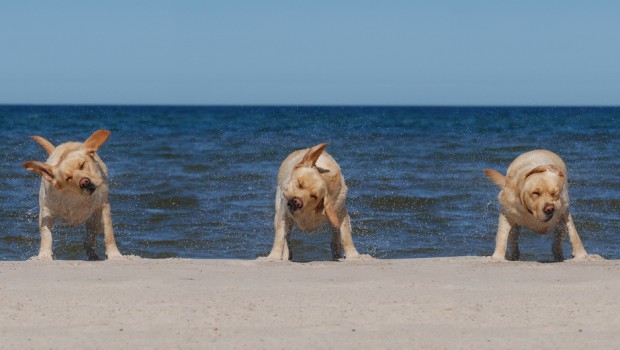The Powerful Role Of Water In Your Dog’s Health
Your dog’s body is made up of 70% water. He can live even if he loses all the fat and half of the protein in his body. However, he will die if his body loses even just 1/10 of his water.
In order to survive, a full-grown dog requires, at the very least, two milliliters (ml) of water for every pound he weighs every single day (keeping in mind that there are 30 milliliters of water per 1 ounce). The two milliliters are just enough for the dog to produce urine in his body. Without enough water necessary for urine production, your dog, any dog, will not be able to live.
When given an unlimited amount of water, your dog will drink much more than the required two millimeters. This is especially true when you always keep a fresh bowl of water. Giving your dog just the least amount of water every day may be enough for him to survive, but not for long. Deficiency in water harms the body and gradually terminates its functions. He will eventually turn weak, get sick, and die.
The importance of giving your dog more water than the least amount needed is used in several ways:
1. Water is used to help digest and absorb nutrients.
2. It is used to burn fuel, which is turned into energy.
3. Water is responsible for maintaining a normal body temperature.
4. Drinking enough water replaces the fluids that are lost in the body during secretions.
5. Water is also responsible for mixing different types of chemicals in the body as they dissolve and transform into different chemical reactions.
6. Water carries nutrients to the cells and also transfers toxic waste products from the cells to the organs for proper elimination. With the absence of water, these organs will not be able to get rid of toxins from the body.
7. Last but not least, water is needed to regulate the blood’s acid level.
As you can see, water is almost always required for every function that takes place in the dog’s body. And because of its versatility and the degree to which it is used, water is considered to be the most important nutrient that is required on all breeds of dogs.






